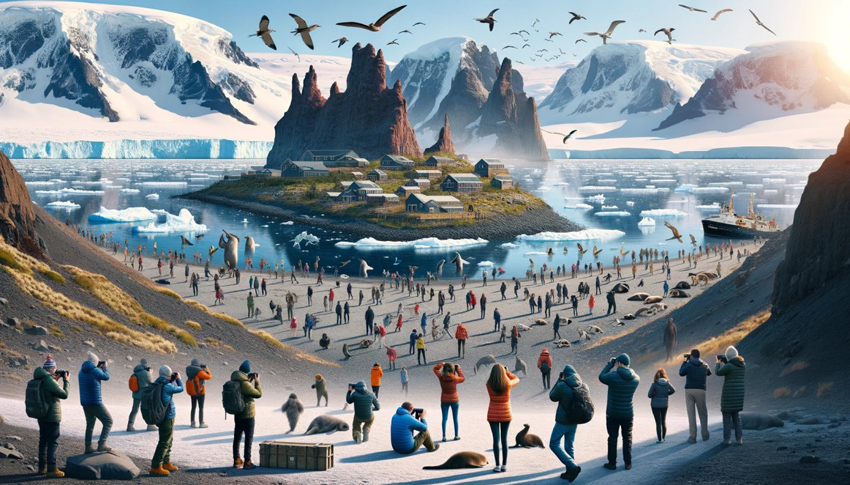Thursday, February 29, 2024

Deception Island in Antarctica, characterized by its steaming beaches and glaciers against the backdrop of an active volcano, offers scientists invaluable insights into potential life forms on Mars. This unique location, part of the South Shetland Islands, stands as the sole place on Earth where vessels can navigate directly into the caldera of an active volcano.
Located approximately 420km from Chile’s Port Williams, the surrounding waters harbor a diverse marine life, including fish, krill, anemones, and sea sponges. On land, an ecosystem thriving on extreme contrasts supports unique species of lichen and moss. Despite the absence of human inhabitants, the island boasts what is possibly the largest colony of chinstrap penguins, along with seabirds, seals, and sea lions.
The island’s volcano has shown signs of activity over thousands of years, with the latest eruptions recorded in 1967, 1969, and 1970. These eruptions had significant impacts, leading to the devastation of British and Chilean bases and the evacuation of an Argentine base. Despite these events, life on the island persists, adapting and flourishing in an environment where water temperatures in steam vents can reach about 70°C, contrasting sharply with air temperatures that may drop to -28°C.
The distinctive characteristics of Deception Island not only serve as a critical research site for scientists studying life’s potential on Mars but also have a significant impact on tourism. The island’s unique combination of volcanic activity and icy landscapes, along with its rich biodiversity, positions it as a compelling destination for tourists interested in both adventure and science.
As researchers draw parallels between the island’s environment and that of Mars, it enhances the island’s allure, attracting visitors keen on experiencing a place that closely resembles extraterrestrial conditions. This increase in scientific and tourist interest can contribute to the growth of sustainable tourism, promoting conservation efforts while offering educational experiences that highlight the importance of preserving such unique ecosystems. Ultimately, Deception Island’s role in advancing our understanding of life on Mars not only enriches scientific knowledge but also elevates its status as a must-visit location, fostering a deeper appreciation for Earth’s natural wonders and their extraterrestrial connections.
Spanish planetary geologist Miguel de Pablo has drawn parallels between the conditions on Deception Island and those on Mars, noting the similarities due to Mars’s volcanic past and current cold conditions. This comparison is vital, as the study of rocks on Deception Island aids the work of engineers, scientists, and astronomers who analyze Mars from a distance.
In 2023, NASA researchers concluded that Mars once had a climate with cyclical seasons favorable for the development of life. This conclusion was based on evidence collected by the Curiosity rover, which suggested that a significant volcanic eruption on Mars altered its atmosphere, leading to the formation and eventual evaporation of oceans and rivers.
Although present-day temperatures on Mars are much colder, estimated by NASA to be around -153°C, the conditions in Antarctica provide a model for understanding the potential for life’s development on Mars, according to de Pablo.
Tags: antarctica, exploration, Mars, Penguins, Science, Tourism, Volcano
Saturday, April 27, 2024
Saturday, April 27, 2024
Saturday, April 27, 2024
Saturday, April 27, 2024
Friday, April 26, 2024